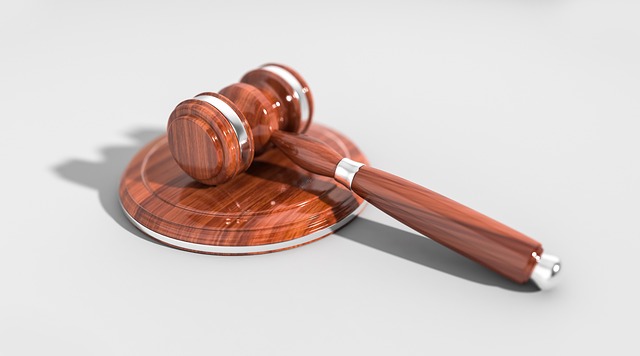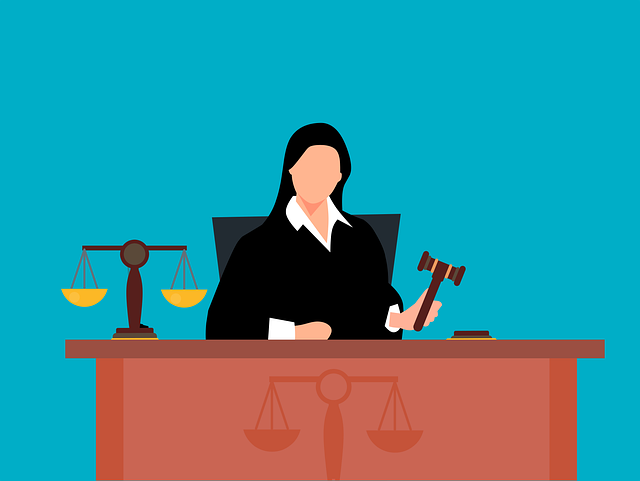Oregon's criminal justice system maintains a balance between individual rights and public safety through interconnected components including law enforcement, prosecutors, defense attorneys, and courts. The process begins with an arrest, followed by an initial court appearance where charges are read and the right to legal counsel is granted. This can lead to a plea bargain or trial, where a jury determines innocence or guilt. Key steps include booking procedures, Miranda rights, and the right to counsel, guaranteed for all accused individuals through private legal retention or public defenders. Pre-trial hearings shape case outcomes, with bond determinations balancing public safety and constitutional rights. Trials follow investigations and pre-trial hearings, culminating in verdicts of acquittal or conviction. Post-trial appeals ensure fairness by correcting legal errors.
“Dive into Oregon’s intricate criminal justice system, where understanding defense procedures is paramount. This comprehensive guide navigates the basics of the state’s legal processes, from arrest to post-trial appeals. Discover how Oregon’s unique framework impacts your rights as a defendant. Learn about crucial steps, including booking procedures, accessing legal counsel, pre-trial hearings, trials, and the appeals process. Empower yourself with knowledge in this essential guide to Oregon’s criminal defense strategies.”
- The Basics of Oregon's Criminal Justice System
- Arrest and Booking Procedures
- Accessing Legal Representation
- Pre-Trial Hearings and Bond
- Trials and Verdicts
- Post-Trial Appeals and Rights
The Basics of Oregon's Criminal Justice System

Oregon’s criminal justice system, like many in the U.S., operates on a foundation of protecting individual rights while ensuring public safety. At its core, this system includes law enforcement agencies, prosecutors, defense attorneys, and the courts. The primary goal is to resolve criminal cases fairly, with a focus on due process and the presumption of innocence.
In Oregon, the criminal justice defense process begins with an arrest, followed by an initial appearance before a judge. During this stage, individuals are informed of the charges against them and given the right to legal counsel. This sets the stage for one of two potential outcomes: either a plea bargain, where the defendant agrees to plead guilty in exchange for reduced charges or a lighter sentence, or a trial, where a jury determines guilt or innocence based on evidence presented by both prosecution and defense attorneys.
Arrest and Booking Procedures

When an individual is arrested in Oregon, law enforcement follows specific procedures outlined in the state’s criminal code. The initial step involves a thorough assessment by officers to ensure the person’s rights are respected and any injuries or needs are addressed. Following this, booking procedures commence, which include taking the suspect’s fingerprints, photographs, and collecting personal belongings for safekeeping. These measures are crucial in the criminal justice defense process as they establish an accurate identification and protect the individual’s constitutional rights.
During booking, law enforcement officers will also read the accused person their Miranda rights, informing them of their right to remain silent and consult with a lawyer. This critical step ensures that any statements made by the suspect are done so voluntarily and can later be used as evidence in court, providing essential information for both parties involved in the criminal justice defense process.
Accessing Legal Representation

In Oregon, understanding your rights and accessing adequate legal representation are cornerstone aspects of any criminal justice defense strategy. The state guarantees the right to counsel for all individuals charged with a crime, ensuring fairness and due process. This means that those accused have the ability to retain private legal counsel or request appointment of a public defender if they cannot afford representation.
The Oregon Judicial System provides resources to help connect defendants with legal aid organizations and attorneys specializing in criminal defense. These services are designed to ensure that everyone, regardless of financial standing, has access to competent legal representation. This process begins at the initial appearance, where the accused can express their preference for legal counsel and receive guidance on available options.
Pre-Trial Hearings and Bond

In Oregon, pre-trial hearings play a pivotal role in the criminal justice defense process. These hearings are crucial steps where both the prosecution and defense strategize, present evidence, and argue key points that will shape the case’s trajectory. During these proceedings, judges make critical decisions, including setting bond amounts. The bond, or bail, is a security deposit ensuring the defendant’s appearance at future court dates. It’s determined based on factors like the severity of the crime, flight risk, and prior criminal history, with the goal of balancing public safety and the right to reasonable bail as guaranteed by the Eighth Amendment.
Understanding pre-trial hearings and bond procedures is essential for anyone interested in Oregon’s criminal justice defense mechanisms. These processes ensure fairness, allow for strategic maneuvering, and safeguard the rights of both defendants and the state, ultimately contributing to a more robust legal framework.
Trials and Verdicts

In Oregon, criminal justice defense procedures culminate in trials, where the fate of an accused is determined by a jury’s verdict. Trials serve as the final stage in the legal process, following investigations, pretrial hearings, and various motions aimed at safeguarding the defendant’s rights. The process involves presenting evidence, calling witnesses, and arguing legal points to persuade the jury of the defendant’s innocence or the insufficiency of the prosecution’s case.
Verdicts can result in a variety of outcomes, ranging from acquittal—when the jury finds the defendant not guilty—to conviction for the charged offense. Oregon law emphasizes a fair and balanced approach, ensuring that both parties have the opportunity to present their cases fully and impartially. Understanding these trials and verdicts is crucial for anyone navigating Oregon’s criminal defense legal procedures, as it forms the core of the criminal justice system, safeguarding individual liberties while upholding societal norms.
Post-Trial Appeals and Rights

After a trial, either the defendant or the prosecution can appeal the outcome if they believe there was legal error. Post-trial appeals are a crucial part of the criminal justice defense process, allowing for a second look at the case. In Oregon, appeals are typically handled by the Oregon Court of Appeals, which reviews the record and decides whether the lower court made mistakes in its application of the law.
Defendants have the right to legal representation during the appeal process, ensuring they can navigate the complex legal procedures effectively. The appeals process offers an opportunity to correct any errors and ensure a fair trial. It’s essential for criminal justice defense attorneys to file timely appeals and present compelling arguments to preserve their clients’ rights and potentially overturn unfavorable verdicts.
